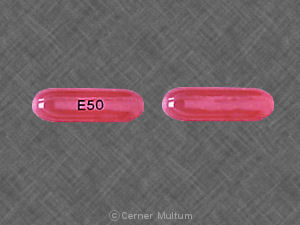Etoposide Dosage
Medically reviewed by Drugs.com. Last updated on Jul 25, 2025.
Applies to the following strengths: 20 mg/mL; 50 mg
Usual Adult Dose for:
Additional dosage information:
Usual Adult Dose for Testicular Cancer
In combination with other approved chemotherapeutic agents:
50 to 100 mg/m2 IV over 30 to 60 minutes once a day on days 1 through 5 every 3 to 4 weeks to 100 mg/m2 IV over 30 to 60 minutes once a day on days 1, 3, and 5 every 3 to 4 weeks
Comments:
- A longer duration of IV administration may be used if the volume of fluid to be infused is a concern.
- The dosage should be modified to consider the myelosuppressive effects of other drugs in the combination or the effects of prior x-ray therapy or chemotherapy which may have compromised bone marrow reserve.
Use: In combination therapy with other approved chemotherapeutic agents in patients with refractory testicular tumors who have already received appropriate surgical, chemotherapeutic, and radiotherapeutic therapy
Usual Adult Dose for Small Cell Lung Cancer
IV:
In combination with other approved chemotherapeutic agents:
35 mg/m2 IV over 30 to 60 minutes once a day for 4 days to 50 mg/m2 IV over 30 to 60 minutes once a day for 5 days every 3 to 4 weeks
Oral:
In combination with other approved chemotherapeutic agents:
The recommended dose is 2 times the IV dose rounded to the nearest 50 mg (i.e., 2 times 35 mg/m2 IV once a day for 4 days to 50 mg/m2 IV once a day for 5 days equaling 70 mg/m2 orally once a day for 4 days to 100 mg/m2 orally once a day for 5 days)
Comments:
- A longer duration of IV administration may be used if the volume of fluid to be infused is a concern.
- The dosage should be modified to consider the myelosuppressive effects of other drugs in the combination or the effects of prior x-ray therapy or chemotherapy which may have compromised bone marrow reserve.
Use: In combination with other approved chemotherapeutic agents as first line treatment in patients with small cell lung cancer
Renal Dose Adjustments
CrCl greater than 50 mL/min: Administer 100% of the normal dose
CrCl 15 to 50 mL/min: Administer 75% of the normal dose
CrCl less than 15 mL/min: Data not available
Liver Dose Adjustments
Data not available
Dose Adjustments
The dose should be modified to consider the myelosuppressive effects of other drugs in the combination or the effects of prior X-ray therapy or chemotherapy which may have compromised bone marrow reserve.
Precautions
US BOXED WARNING:
- This drug should be administered under the supervision of a qualified physician experienced in the use of cancer chemotherapeutic agents. Severe myelosuppression with resulting infection or bleeding may occur.
Safety and efficacy have not been established in patients younger than 18 years.
Consult WARNINGS section for additional precautions.
Dialysis
Data not available
Other Comments
Administration advice:
- Oral capsules should be administered on an empty stomach (1 hour before or 2 hours after food).
- Courses of therapy may be repeated at 3 to 4 week intervals, after adequate recovery from toxicity.
Monitoring:
- Patients should be frequently observed for myelosuppression both during and after therapy. Dose-limiting bone marrow suppression is the most significant toxicity. The platelet count, hemoglobin, white blood cell count, and differential should be obtained at the start of therapy and prior to each subsequent dose.
Reconstitution/preparation/storage advice:
- Consult the manufacturer product information.
General:
- The parenteral formulation of this drug is for IV administration only and should not be mixed with any other drug.
Frequently asked questions
- How long does chemo take? Sessions and recovery time?
- How soon will my hair grow back after chemotherapy?
- Will I lose my hair during chemotherapy treatment?
- Radiation vs. Chemo: Which cancer treatment is right for you?
- What is EPOCH/R-EPOCH chemo regimen and how is it used?
More about etoposide
- Check interactions
- Compare alternatives
- Pricing & coupons
- Reviews (2)
- Drug images
- Side effects
- During pregnancy
- Drug class: mitotic inhibitors
- Breastfeeding
Patient resources
- Etoposide drug information
- Etoposide injection
- Etoposide phosphate
- Etoposide (Intravenous) (Advanced Reading)
- Etoposide (Oral) (Advanced Reading)
- Etoposide Capsules
Other brands
Professional resources
Other brands
Related treatment guides
See also:
Further information
Always consult your healthcare provider to ensure the information displayed on this page applies to your personal circumstances.


